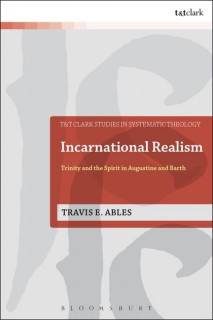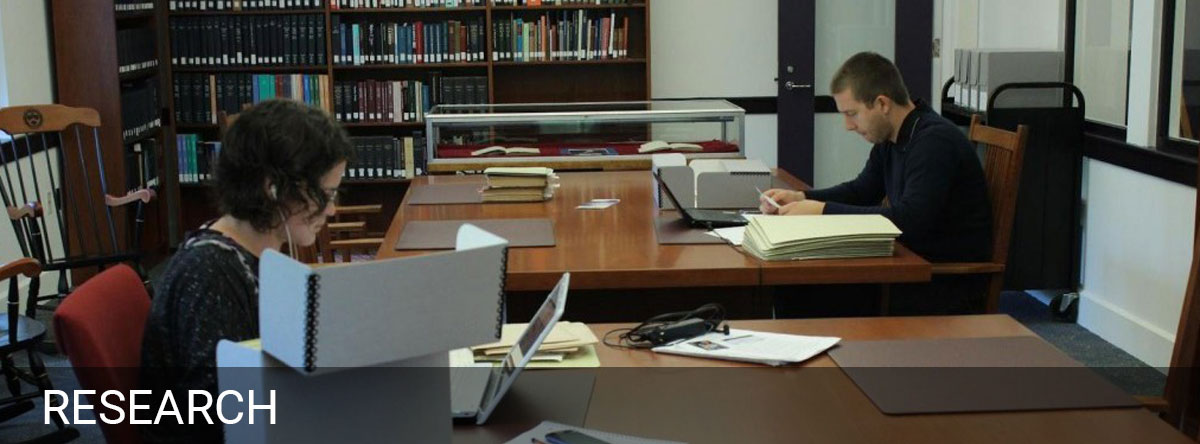 Ables, Travis E. Incarnational Realism: Trinity and the Spirit in Augustine and Barth (London: T & T Clark, 2013), 288 pp. $130.00 (hardback).
Ables, Travis E. Incarnational Realism: Trinity and the Spirit in Augustine and Barth (London: T & T Clark, 2013), 288 pp. $130.00 (hardback).
Reviewed by Luke Zerra (September 03, 2015)
A pervasive tendency in contemporary theology has been to cite Augustine as bestowing a problematic legacy to Western Trinitarian theology. Augustine – as theologians such as Catherine Lacugna, Colin Gunton, and Robert Jenson tell us – is insufficiently Trinitarian, emphasizing divine unity and downplaying the role of the Spirit to the point of losing sight of God’s triunity. Karl Barth, despite initiating the Trinitarian revival of the 20th century, has been critiqued along similar lines. To his critics, Barth’s emphasis on divine subjectivity is overly monistic and potentially modalistic, his focus on God’s eternity divorces the immanent Trinity from the economy of salvation, and his doctrine of the Spirit reduces the Trinity to – in the words of Jenson – a “binity” of Father and Son (105).In Incarnational Realism, Travis E. Ables offers an analysis of Augustine and Barth’s respective pneumatologies in order to counter this “standard narrative” of a supposed trinitarian decline in Western and Augustinian theology (17). Ables claims that at its best Western theology presents a vision of God as a singular self-diffusive act of love and that pneumatology is the means by which we are able to talk about our own participation in this act of self-giving (12). While much of modern trinitarian theology assumes that Christology and pneumatology “operate univocally (and thus competitively)” (187), Ables seeks to show that Western theology ideally teaches that knowledge of God is only possible in the incarnation and that “the work of the Spirit is to make us contemporaneous to, and participants in, the incarnation” (189). This “incarnational realism” is present in both Augustine and Barth, showing that neither in fact suffers from a pneumatological deficiency, and that each theologian offers important correctives to the other’s thought (189).
After sketching how modern theology has sought to approach Trinitarian theology by privileging either the communion of the divine persons or the historicization of the divine being (17-18), Ables turns in chapters 2-4 to Augustine’s De Trinitate. For Ables, apophaticism is key to Augustine’s Trinitarian thought. As supremely unknown, God is only revealed in Christ’s descent to us and in our elevation in the Spirit to the knowledge of God. Rather than amounting to a Neoplatonic natural theology, the famous psychological analogy is then “not an analogy at all, but rather a description of the actualization of the image of God by grace . . . bringing us into union with God” (55). This enactment of the imago dei takes place in and through the Spirit, being the basis of what Ables terms “Augustine’s Ethical Apophaticism” (101). This is the claim that while theological speech ends in unknowing, we come to contemplate God by loving the neighbor, seeing the face of Christ in the other as we participate in God through the Spirit (101-104). For Ables, Augustine’s pneumatology of ethical apophaticism counters both modern theology’s portrayal of Augustine as lacking pneumatological depth as well as Radical Orthodoxy’s positive retrieval of Augustine, which Ables claims reduces the Spirit to a logical necessity (101-104).
In chapters 5-7 Ables turns to Barth, focusing on tracing the development of Barth’s pneumatology in the Church Dogmatics (CD). Looming over Ables’ entire discussion of CD is his claim that Barth’s trinitarianism pivots between an “Augustinian” tendency – which emphasizes divine simplicity and self-giving – and a “Hegelian” tendency focused on divine pluralism (109). In a way, Barth’s pneumatology across CD is a dialectic between these two supposedly contradictory tendencies.
Ables finds an Augustinian tendency in Barth’s dialectic of revelation in CD I/1. Here pneumatology is at the heart of revelation, allowing us to be participants in God’s revelatory self-giving (107). God’s unity means that “God has one work of revelation, God’s self-giving in Christ, and the work of the spirit is the moment of participation in Christ that is at the same time inherent in that work” (114). Similarly, Barth’s famed doctrine of election in CD II/2 has resonances with the Augustinian notion of the totus christus, revealing that participation is objectively grounded in the particular person of Jesus and subjectively enacted through the Spirit (121-125). CD I/1 and II/2 then both rely on the Augustinian notions of simplicity and self-giving as the work of Christ and the Spirit are united in the acts of revelation and election.
On Ables’ account problems arise when Barth deviates from Augustinianism simplicity. Case in point is Barth’s problematic discussion of gender roles in CD III. Here the Hegelian tendency “demands an economy of grace characterized by the mutual production of identity and the instrumentalization of the other . . . Just as God needs another to know Godself and escape the confines of a static and monistic substance, so man needs another—woman—to know himself and escape the solipsism of the solitary self” (130). Chapters 6 and 7 are further devoted to exploring Hegelian idealism in Barth, particularly in relation to CD IV and the influential work of Bruce McCormack. In short, Ables claims that idealism necessitates an other, thereby detracting from Barth’s most essential insight: namely that “there is one common agency and work of God, in the form of God’s self-giving in Jesus Christ, a single and simple self-donation that proceeds from the Father and incorporates us in the work of the Spirit” (150).
Much is to be commended in Ables’ work. He is a clear writer with a gift for lucid explanations of complex ideas and schools of thought. As such, the book is as helpful for demystifying contemporary trajectories in trinitarian theology as it is for analyzing the thought of Augustine and Barth. Further, while much defense of Augustine’s trinitarianism has come from historical theologians such as Lewis Ayers, Michel Barnes, and Rowan Williams; Ables’ work is helpful in offering a defense from the realm of systematic theology, adding an important voice to the debate over Augustine’s legacy.
That said there are some concerns to be raised with Ables’ volume. Surprisingly, the work does not discuss the filioque, a seemingly important point for a book on Western trinitarianism and pneumatology. This is especially the case given Ables’ noting of the importance of Eastern paradigms and theologians in the 20th century trinitarian revival (4-9). This omission – noted by Ables but with no reason given – is likely and understandably due to the limits of space in an already dense book (14).
Further, while Ables’ challenging of masculine language for God is necessary and laudable, his decision to refer to the Holy Spirit with feminine pronouns needs more elaboration and unpacking. While Ables may be correct that in doing so “we can think of the Spirit less as a lone girl, taking a backseat to the starring roles accorded to the guys” (15), Elizabeth Johnson and Sarah Coakley have raised important points about this potentially leading to the devaluation of the Spirit, an end that runs completely against Ables’ goal.
Another concern lies in Ables’ tendency to replace one declension narrative with another. While Ables laments how many theologians subscribe to the “standard narrative” of Augustinian trinitarian decline, much of Incarnational Realism is predicated on a skeptical stance toward Hegel’s legacy in modern theology. While Ables offers compelling reasons for his concerns, much of his engagement is in fact with readers of Hegel rather than Hegel himself. While Ables cedes that his work cannot offer a full internal critique of Hegel (172), Ables’ claims would be strengthened if he were to emphasize that his critique is of particular interpretations of Hegel among theologians and less so with Hegel himself. This is important in a context where a growing body of scholarship – not only by philosophers such as Terry Pinkard and Robert Pippin, but also by religious ethicists like Thomas A. Lewis and Jeffrey Stout – has challenged longstanding interpretations of Hegel’s thought.
These criticisms aside, Ables’ volume is an important work for those interested in Augustine, Barth, and contemporary trajectories in trinitarian theology. Ables succeeds in presenting Augustine and Barth as exemplars of Western trinitarian thought at its best: namely, of God as a singular act of self-giving revealed in Christ and in which we participate through the Spirit. Both students and critics of Augustine and Barth will find much insight and value in this book.
The views expressed here are strictly those of the author; they do not necessarily represent the views of the Center for Barth Studies or Princeton Theological Seminary.

